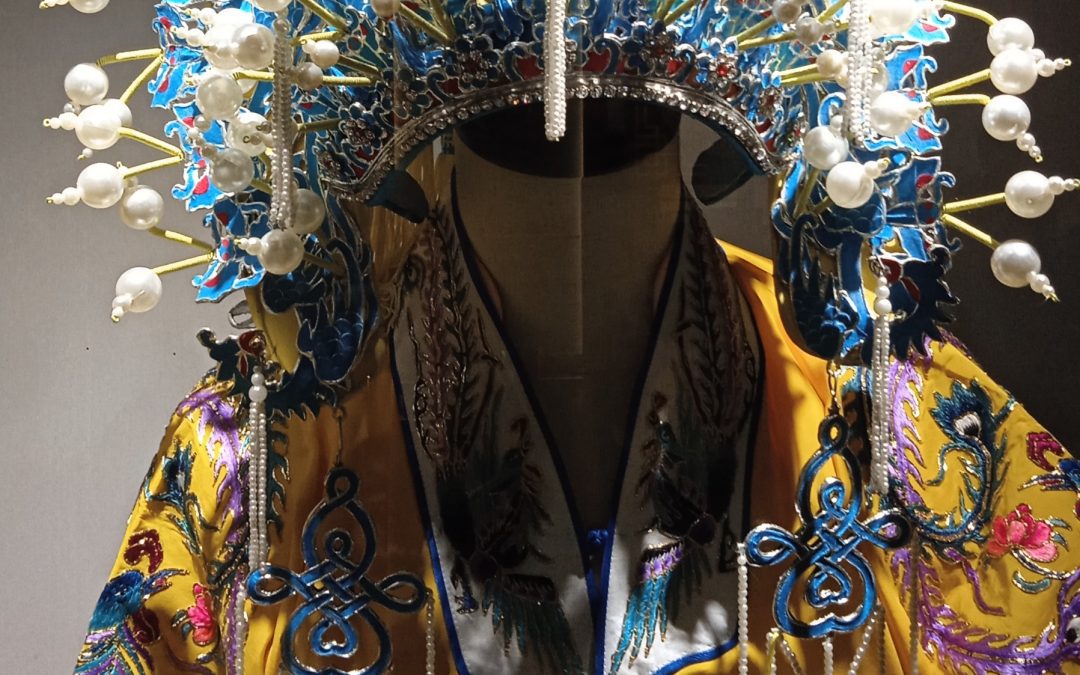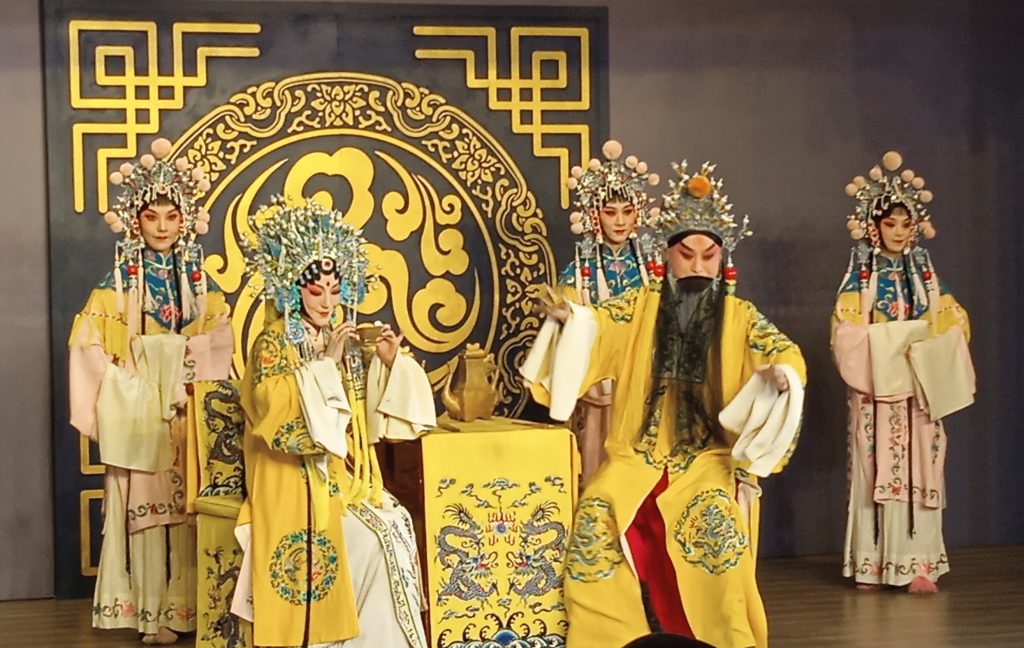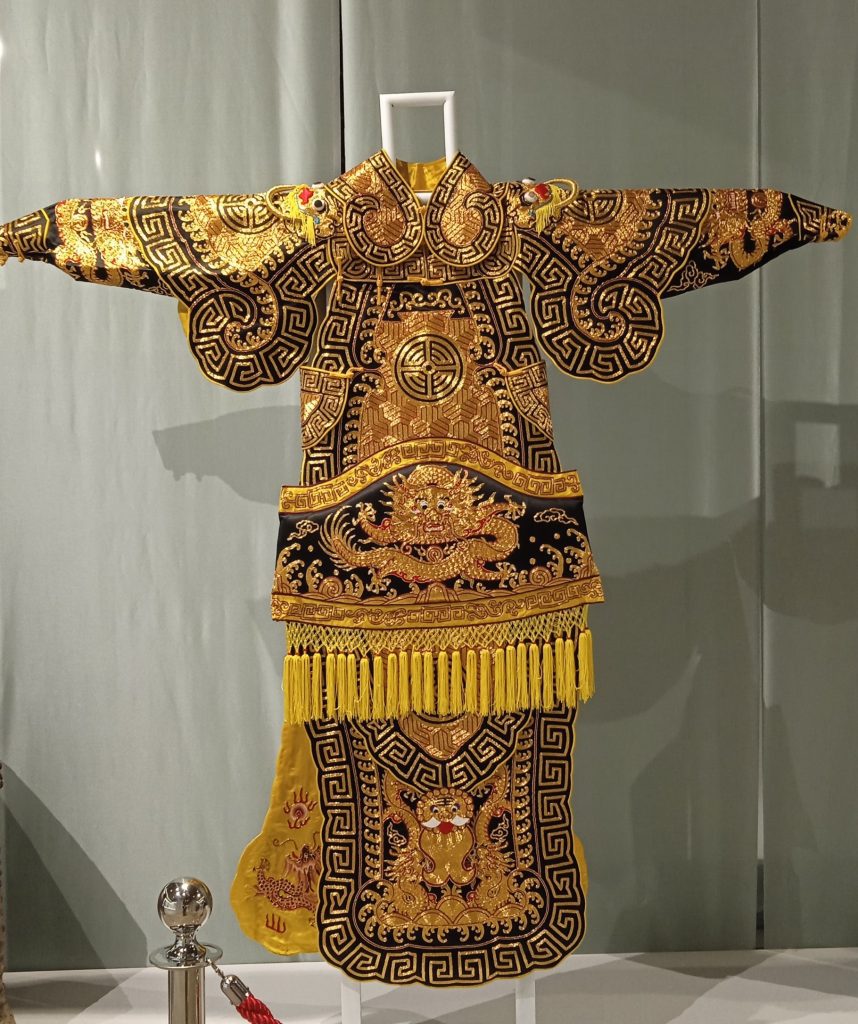I attended the opening of the “Dreaming through 6 Centuries” exhibition and Kunqu Opera performance at the Beijing Overseas Cultural Exchange Centre on Tuesday, 30 May.
A huge segmented opera mask sculpture fronted the cultural centre. Right away, I could see similar sculptures reflecting the Shakespeare and Shortknee masks gracing public spaces somewhere in Grenada.
Kunqu Opera developed under the Ming dynasty—14th to 17th centuries—in the city of Kunshan, Suzhou region in southeast China. It features complex choreography and symbolic gestures by cast members in traditional costumes rich in colours and styles. Kunqu Opera combines narrating, acting, singing and dancing. With a history of over 600 years, Kunqu is one of the oldest forms of Chinese opera still performed today, with considerable influence on more recent forms of Chinese operas.
This cultural artform was proclaimed in 2001 and inscribed in 2008 by UNESCO on the Representative List of the Intangible Cultural Heritage of Humanity. It is yet another of China’s cultural bridges to the world, as it has been performed in many spaces outside of China. The displayed costumes were covered in real gold and gold thread, up to 26 grams. During the performance, bamboo flutes, drums, gongs and cymbals punctuated the movements on stage. A small screen provided a running commentary in English.
I was interviewed by a journalist from Peoples’ Daily about my feelings about the exhibition and performance. I concurred that it is a sign of a country’s cultural strength when its indigenous performance crafts are nationally recognised and internationally listed as Intangible Cultural Heritage by UNESCO. Asked about Grenada’s performance crafts, I spoke about our traditional masquerades distilled from West African and European performances, like the Shakespeare Mas and the Shortknee.
According to UNESCO, cultural heritage includes monuments and objects, as well as “traditions or living expressions inherited from our ancestors and passed on to our descendants, such as oral traditions, performing arts, social practices, rituals, festive events, knowledge and practices concerning nature and the universe or the knowledge and skills to produce traditional crafts.” The Shakespeare and Shortknee traditional masquerades are primary elements of Grenada’s living expressions. While activists and performers actively promote the generational knowledge of these performance crafts, Grenada has not yet nationally recognised them as Intangible Cultural Heritage (ICH). China’s national recognition of indigenous performance crafts is an excellent example to follow.





